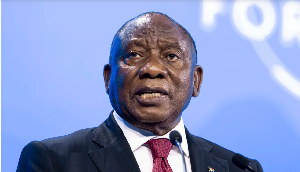Competition in the insurance industry has pushed many insurers to adopt the unconventional strategy of undercutting premiums just to win business, according to the Business & Financial Times (B&FT).
This has become a problem to many practitioners who are worried the practice will expose the industry to claims that may compromise its integrity. Mr Benjamin Amoako, Head, Marketing & Business Development of NSIA Insurance, said premium undercutting is a very big problem in the industry.
“That is our problem now. Motor premiums were increased recently, but we (underwriters) are not going by that. We are undercutting seriously,” he said.
“Undercutting has become the order of the day. We should be self-disciplined and make sure that we charge the right rates. This is insurance, and the bottom line is that we should be able to put the client back where he/she was before disaster happened.
"So if you carry too many benefits to the client without taking the necessary premium and there is a claim, you will find yourself wanting. That has been the challenge, and we have to seriously look at it or else the industry is doomed,” Mr. Amoako added.
Currently, there are about 42 licenced insurance firms in the country – who are all competing in a market that has low insurance penetration rate.
The low penetration of insurance in the country has been hampered by the inability of some insurers to honour genuine claims when they fall due. And the current trend of undercutting could further dent the image of an industry that is struggling to shrug-off bad perception among the public in regard to declining claims.
The Executive Director of Enterprise Insurance Company, Kwame Ofori, further explained to the B&FT that some of the insurers have resorted to undercutting in an attempt to win over clients of competitors by proposing rates that make their business attractive.
“The industry itself has a problem. The premium that we charge keeps dropping every year. For example, you have business that you charge a certain percentage premium. The following year, you will hear that another insurer who wants that business has gone to propose a premium that is way below the percentage that you are charging.
“So if you want to retain that business, you also have to charge below what has been proposed by the other insurer”.
“When it happens that way, it is good for the client and you can say it is good for compe4tition. But that depends on whether we are getting the right premium. Sometimes, when you see some of the rates that are being charged, it is so disheartening.
“The issue is that you need to make sure that as an insurance company you build reserves for the eventual claim that might occur. If you don’t have that reserve and the claim to occurs, it will hit you and you can’t pay.
“You can say insurance premium rates are coming down, but the question you need to ask is: are those rates the right rates? Are they realistic rates to be charged compared to the risks that we are assuming? “If not, if a claim occur and you can’t pay.”
“Clients must also understand and know whether the company that they are giving a business to can respond appropriately when a disaster occurs or there is a claim,” he said.
Currently, third party motor insurance is the only policy that is being regulated by government. The other insurance policies are open – which gives underwriters the discretion to charge premiums that are commensurate with the risk being taken. This has made the insurance industry one of the most liberalised sectors of the economy.
Some observers have proposed the settings of minimum rates to be charged on insurance policies as a way to check excesses in underwriting. Mr. Ofori however disagrees, proposing instead a way to coerce insurers into honouring claims when they are made.
“I don’t believe in minimum rates for the industry. I believe in the fact that we should all have the freedom to quote anything that we want. Every insurance company should be able to quote whatever they want or deem fit.
“But when there is claim, companies must be forced to pay. Because if they charge outrageously low premiums and when there is a claim and they can’t pay, they spoil the name of every insurer.
"So I think there should be a mechanism that forces everybody to pay claims when they fall due,” he said.
Business News of Monday, 4 March 2013
Source: B&FT












